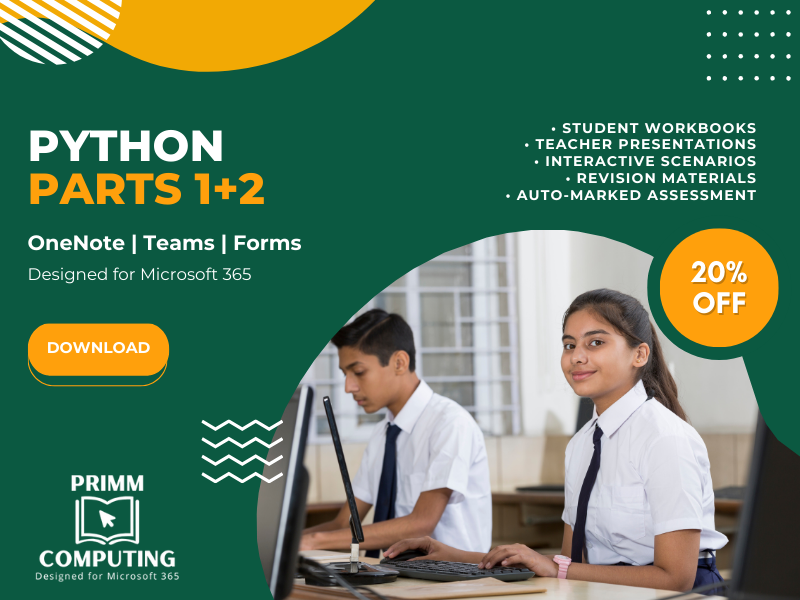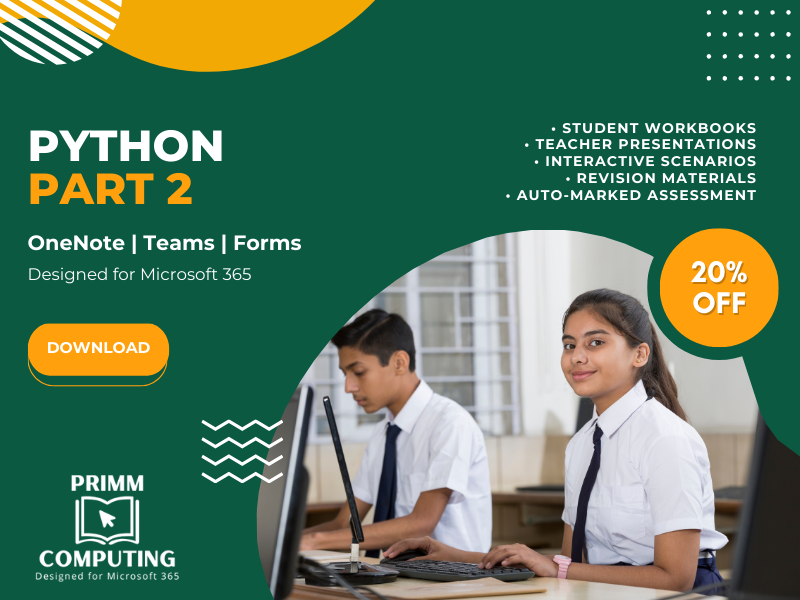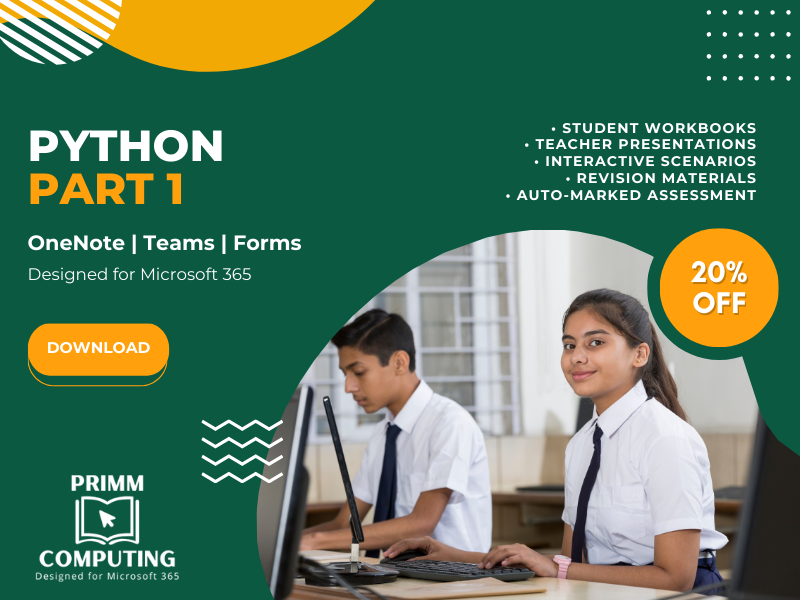Introduce students to programming in Python with this all-digital unit of work designed to take full advantage of the Microsoft 365 platform, including OneNote, Teams and Forms whilst using the PRIMM pedagogy recommended by the NCCE.
This resource, last updated on 30th June 2024, has been designed for KS3 and KS4 students new to programming in Python and contains twelve high-quality lessons.
Part 1:
Lesson 1: IDEs and Variables
Lesson 2: Inputs and Sequence
Lesson 3: Data Types & Arithmetic
Lesson 4: Casting & Concatenation
Lesson 5: Mini Projects
Lesson 6: Assessment 1
Part 2:
Lesson 1: Selection (IF)
Lesson 2: Selection (ELIF, ELSE)
Lesson 3: Iteration (Condition-Controlled)
Lesson 4: Iteration (Counter-Controlled)
Lesson 5: Mini Projects
Lesson 6: Assessment 2
Included in this package:
• Twelve OneNote workbooks that include all learning materials, linked activities and spaces for students to answer questions and screenshot work.
• Multiple interactive programs/activities per lesson running in-browser – no additional software!
• Twelve teacher presentations to accompany each lesson with answers.
• Two knowledge organisesr, summarising unit content.
• Two auto-graded assessment, containing a mixture of free-text and multiple-choice questions (complete with common misconceptions).
• Get insights on student performance via Microsoft Forms and identify gaps in knowledge.
How I use this resource: Create a ‘section’ in OneNote/Teams with the title of the unit via the Class Notebook, then distribute one page each lesson to the desired class – no printing required! Students complete the ‘Retrieval Grid’ in their notebooks on entry to embed key terms over time. The teacher delivers a retrieval activity to reinforce prior learning before introducing the new topic. Students then complete their work within the Class Notebook following the lesson structured using the PRIMM pedagogy. After each ‘Investigate’ section, review answers with the class and have them mark and correct any work using the ‘Draw’ tools and designated spaces. At the end of each unit, set the assessment via the ‘Assignments’ area in Team for optimum feedback.
For more of my resources, including learning to program in Scratch, please view my shop to access more content in this style.
Something went wrong, please try again later.
This resource hasn't been reviewed yet
To ensure quality for our reviews, only customers who have purchased this resource can review it
Report this resourceto let us know if it violates our terms and conditions.
Our customer service team will review your report and will be in touch.


